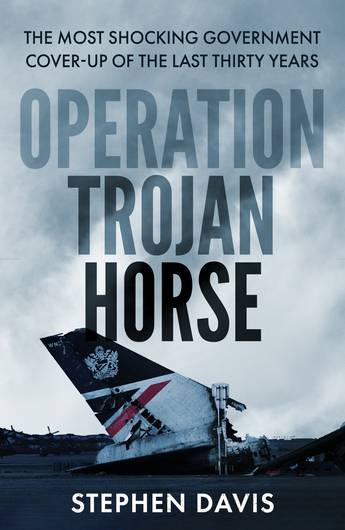OPERATION TROJAN HORSE
Stephen Davis
Allen & Unwin
REVIEWED BY MATTHEW JAMES
When his investigation began, British-based Kiwi journalist Stephen Davis thought it might be a few weeks of work and a feature.
Three decades later the story of how a British Airways flight from London landed in Kuwait after Iraq invaded the Middle East country, and the horrible aftermath for its passengers, is the subject of a long-awaited book.

Flight 149 was on its way to Kuala Lumpur, but never made it. Its passengers came from everywhere, including New Zealand.
Davis’ dogged reporting for three decades has produced a rollicking read, thanks to the depth and breadth of interviews he has conducted.
Using his considerable skill as a journalist, eyewitness recollections carry the story, as those on board the flight were held hostage for months by Iraqi troops and used as human shields at strategic locations.
As time wore on, conditions worsened for the hostages, but despite their treatment they have battled for recognition for what they went through. Davis, though, spells it out.
Between the recollections come revelations about the real reason the flight landed after war began - a secret mission to drop special forces personnel into Kuwait - and the keenness of British politicians to keep this secret.
Then-British Prime Minister Margaret Thatcher said the plane landed before Iraq invaded. This was not true, but it became the accepted version of the story. Turn away, nothing to see here.
Davis has worked to gain the trust of sources from across the story, including the British special forces members, who paint vivid pictures of their Kuwait mission and their own hardships.
The cast of characters ranges from these men to flight passengers and staff, detailing their parts in the months-long drama.
Davis’ subtitle calls this “The most shocking government cover-up for the last 30 years”.
Absolutes such as this are always open to debate, and Britain’s reasoning for entering the 2003 invasion of Iraq may top this, but it is hard to argue with Davis about officials acting with shocking self-interest.
He points out that passengers in other countries have sought redress through the courts, but the British passengers have never seen recognition for their ordeals.
Given that parts of the book seem like an adventure story, Davis’ chapter on the after-effects on the people aboard the flight is poignant.
Many struggled returning to daily life.












